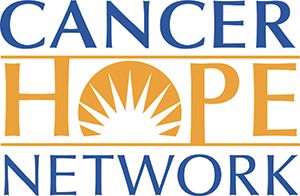Surviving The Holidays

Navigating the ups, downs and new-normal of the holiday season can be challenging for people facing cancer. Our survivor volunteers have tips.
“I might become upset and cry. These tears may be necessary for my healing and recovery so please don’t be embarrassed by them. Pat me on my shoulder, offer me a hug and let me know that you are there. Words aren’t necessary.”
The holidays, while joyous, can be a stressful time under normal circumstances. When you attach the added pressures and emotions of a cancer diagnosis, treatment or loss, this time of year can become unbearable. There are many reasons for this including a multitude of changes, difficulties meeting expectations and awkwardness around the topic, as well as the challenges faced by caregivers. At our recent Volunteer Roundtable, we discussed ways to keep (or find!) the joy this holiday season.
Know yourself and your limits, identify your triggers, and make a plan. If all else fails, as Support Volunteer and survivor Rachelle says, “use the cancer card.”
One of the biggest stressors when going into a holiday season with a cancer diagnosis is change. There are changes in schedules, in traditions, locations, roles, etc. This can be a lot to digest and grieve. “Grief is actually the primal adaptation of change,” shared Support Volunteer Gregory. While it can feel extremely difficult to do so, accepting that you may not be able to duplicate past holiday experiences can relieve an immense amount of pressure. Pre-planning is another great tool to navigating the season. Take some time to identify your triggers, know what you can and cannot do and set expectations for your family and friends. One simple strategy for accomplishing this is to sit down and write letters to your loved ones, as well as to yourself owning your needs and asking for support.
Your letter can be a great tool to help introduce and navigate the alterations to the holidays. It can also be a wonderful tool in expressing your feelings and avoiding uncomfortable discussions during get togethers. Cancer can become the metaphorical elephant in the room and addressing it beforehand gives you some degree of power and control over the narrative. You can update everyone on your treatment and recovery so you don’t have to repeat yourself over and over or explain that you would not like to discuss it at all.
Another strategy is to simplify. In the best of times, money is a burden for many during the holiday season. The additional stress of facing huge medical bills is both frightening and heartbreaking for those facing cancer at this time of year. “Look at your holiday budget. Have your financial circumstances changed since your diagnosis? Be aware of that and release any guilt associated with that.”Rachel DiQuattro, Cancer Hope Network Program Coordinator. When it comes to fulfilling expectations, don’t be afraid to ask for help, your family or friends will understand and be willing to assist.
Caregivers are amazing agents of hope, yet they are often overlooked, especially during the holidays. They can be unsure of (or unwilling to recognize) their own limitations. Friends and family may be focused on how the patient is feeling without taking into account the needs – physical and mental – that the caregiver is facing.
Once again, simplification is key. Communicate with caregivers and loved ones to work out issues ahead of time. When everyone goes into the season with a game plan, it becomes much easier to focus on the HOPE, love and joy that comes with it.
To request support and to be matched with a survivor or caregiver who can offer further advice on how to survive the holidays, please visit cancerhopenetwork.org or call us at 877-467-3638 (877-HOPENET).
Sample pre-holiday letter*:
Dear Friends and Family,
As you know, I’m going into this holiday with a cancer diagnosis. With this and the treatments I am undergoing, I’m finding it hard to muster up holiday cheer. I won’t isolate myself this holiday, but I will probably have to excuse myself early from get togethers. I don’t feel like talking about my diagnosis very much right now. I might become upset and cry. These tears may be necessary for my healing and recovery so please don’t be embarrassed by them. Pat me on my shoulder, offer me a hug and let me know that you are there. Words aren’t necessary.
My energy level is going to be low this season. I can’t do everything that I used to do. If someone is available to help me with some home and holiday tasks, that would be appreciated.
Thank you for caring about me. Your love and concern is a comfort.
Love Always,
*Inspired by Grissom, S. Surviving the Holidays: Grief Share. 2007
